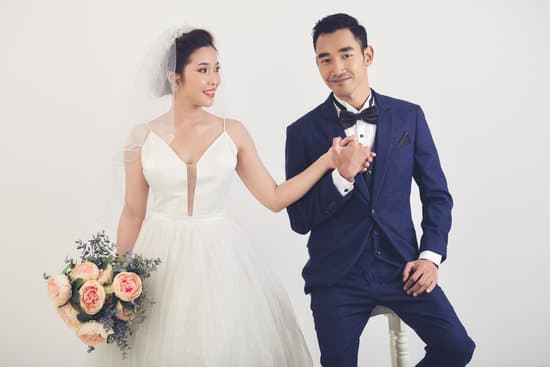Indian weddings are known for their rich cultural traditions and vibrant celebrations that can last for several days. From pre-wedding rituals to post-wedding traditions, each ceremony holds immense cultural significance and is deeply rooted in Indian heritage. In this article, we will explore the various elements that contribute to the duration of an Indian wedding, shedding light on the customs, ceremonies, and factors that influence the length of these joyous festivities.
The cultural significance of Indian weddings goes beyond just the union of two individuals – it is a celebration that brings together families and communities. The elaborate rituals and traditions symbolize not only the union of two souls but also the coming together of two families. It is a time-honored tradition that spans generations, with each ritual carrying its own unique meaning and significance.
As we delve into the different aspects of Indian weddings, we will look at the pre-wedding rituals, the detailed itinerary of the wedding day itself, and the post-wedding traditions. Additionally, we will examine how factors such as regional influences, community customs, and the scale of the event can impact the overall duration of an Indian wedding.
Whether it’s a traditional ceremony or a modern celebration, understanding these elements will provide insight into why Indian weddings can be such grand affairs.
Pre-Wedding Rituals
In Indian culture, a wedding is not just a one-day event but a series of rituals and ceremonies that span several days. Pre-wedding rituals play a significant role in the overall celebration, showcasing the rich cultural traditions and customs of the diverse communities within India. These pre-wedding ceremonies serve as an essential build-up to the main wedding day, creating a sense of anticipation and excitement for the couple and their families.
Engagement Ceremony
One of the first pre-wedding rituals is the engagement ceremony, which marks the official commitment between the bride and groom. Known as “Mangni” or “Sagai,” this ceremony involves exchanging rings, offering prayers, and seeking blessings from elders. The duration of the engagement ceremony varies depending on the customs followed by different communities, but it typically lasts for a few hours.
Mehendi Ceremony
Another important pre-wedding ritual is the Mehendi ceremony, where intricate henna designs are applied to the bride’s hands and feet. This joyful event is usually held at home or in a banquet hall, with female relatives and friends participating in song and dance. The application of mehendi can take several hours, especially for elaborate designs, making it an integral part of the pre-wedding festivities.
Sangeet Ceremony
The Sangeet ceremony is a fun-filled musical evening where both families come together to celebrate through singing and dancing. It is an opportunity for relatives and friends from both sides to showcase their talents in music and dance performances. The Sangeet ceremony can last well into the night, with lively performances keeping everyone entertained.
Overall, these pre-wedding rituals not only add depth and meaning to an Indian wedding but also contribute to extending its duration. Each ceremony holds its own significance and brings families closer together in preparation for the big day. Therefore, understanding these pre-wedding customs gives insight into why Indian weddings are renowned for their length and grandeur.
Wedding Day
On the wedding day, a traditional Indian wedding is filled with various ceremonies and rituals that hold deep cultural significance. The duration of an Indian wedding can vary greatly depending on factors such as the region, community, and scale of the event. To answer the question “how long does an Indian wedding last“, it’s important to understand the detailed itinerary of a typical Indian wedding day.
The wedding day typically begins with the arrival of the groom’s procession, known as the Baraat, which is a lively and celebratory event. This is followed by the Milni ceremony, where the two families meet and exchange garlands.
The actual wedding ceremony may take several hours as it involves intricate rituals like the Kanyadaan (giving away of the bride), Saptapadi (seven vows), and Mangalsutra Dharana (tying of the sacred necklace). These ceremonies are steeped in tradition and hold great spiritual significance for the couple and their families.
After the wedding ceremony, there are often additional customs such as the Vidaai (the bride’s farewell from her family) and the Grihapravesh (welcoming of the bride into her new home). The length of these post-wedding rituals can also contribute to the overall duration of an Indian wedding. Therefore, when considering how long an Indian wedding lasts, one must take into account all these aspects of a traditional Indian wedding day.
Post-Wedding Traditions
After the wedding ceremony, Indian weddings continue with a series of post-wedding traditions that are just as important and significant as the main event. These customs and rituals vary depending on the region and community, but they all serve to bring together the newlywed couple, their families, and their guests to celebrate the joyous occasion.
One of the most common post-wedding traditions in Indian weddings is the reception, where friends and family gather to honor and congratulate the newly married couple. The reception usually includes elaborate decorations, music, dancing, and a lavish feast for all attendees. This part of the celebration can last for several hours, with speeches, performances, and games adding to the festive atmosphere.
Another crucial post-wedding custom is the send-off ceremony, known as “Vidaai” in Hindi. During this emotional moment, the bride bids farewell to her family and is accompanied by blessings from her parents as she leaves her parental home to begin her new life with her spouse. This poignant ritual symbolizes the bride’s transition from one phase of life to another and marks an important part of Indian wedding traditions.
Finally, guests attending an Indian wedding should be prepared for potentially lengthy festivities. On average, an Indian wedding can last anywhere from three to seven days, depending on various factors such as regional customs, community practices, and the scale of celebrations. It is essential for guests to understand these cultural norms and come prepared to engage in several days’ worth of ceremonies and events.
| Post-Wedding Traditions | Duration |
|---|---|
| Reception | Several hours |
| Send-off Ceremony (“Vidaai”) | Emotional moment marking bride’s departure |
Factors Affecting Duration
Indian weddings are known for their extravagance, elaborate ceremonies, and vibrant celebrations. The duration of an Indian wedding can vary significantly based on several factors including the region, the community, and the scale of the event.
Regional Variations
The length of an Indian wedding can greatly depend on the regional customs and traditions. In North India, weddings are typically shorter in duration, often lasting around 2-3 days. However, in South India, weddings are known to extend over a longer period, sometimes spanning a week or more. Each region has its own unique set of rituals and ceremonies that contribute to the overall duration of the wedding festivities.
Community-Specific Traditions
Different communities within India have their own specific wedding customs that affect the length of the celebrations. For example, a traditional Hindu wedding can be a multi-day affair with numerous pre-wedding and post-wedding rituals, while a Muslim wedding may have its distinct set of ceremonies that impact the overall duration.
Scale of the Event
The scale of an Indian wedding also plays a significant role in determining its duration. A larger-scale wedding with hundreds or even thousands of guests is likely to have more elaborate ceremonies and events spread out over several days compared to a smaller, intimate gathering.
Understanding these factors can help individuals better appreciate and prepare for attending an Indian wedding. Each factor contributes to creating a unique experience for both the couple getting married and their guests.
Modern Trends
Indian weddings have evolved over the years, incorporating modern trends that have a significant impact on the duration of the celebrations. These contemporary influences have added new elements to traditional ceremonies, resulting in longer and more elaborate wedding festivities. Here are some modern trends that are shaping the duration of Indian weddings:
- Destination Weddings: Many couples are opting for destination weddings, which can extend the length of the celebration. These events typically last for several days as guests travel to exotic locations for the festivities.
- Fusion Ceremonies: With an increasing emphasis on personalization, couples are blending traditions from different regions or cultures, creating a more diverse and extended wedding experience.
- Elaborate Pre-Wedding Events: Pre-wedding rituals such as mehndi ceremonies, sangeet nights, and haldi functions have become more elaborate and extravagant, contributing to the overall duration of the wedding festivities.
These modern trends reflect a shift towards grander and more multifaceted celebrations, leading to longer durations for Indian weddings. As couples continue to embrace innovation while honoring time-honored customs, the length of these joyous occasions is likely to expand even further.
The duration of an Indian wedding can vary greatly depending on several factors. While traditional weddings may last for 3-4 days, modern influences and regional customs can extend the celebrations further. The scale of the event, the specific rituals observed by different communities, and the location all play a role in determining how long an Indian wedding lasts. Additionally, cultural nuances and family traditions can also impact the duration of these momentous occasions.
Ultimately, regardless of how long an Indian wedding lasts, it is a testament to rich cultural heritage and cherished traditions that have stood the test of time. As modern trends continue to shape these celebrations, they will undoubtedly add new layers of meaning and significance to this timeless union of love and commitment.
Tips for Guests
Attending an Indian wedding can be a truly memorable and culturally enriching experience. However, it’s important for guests to understand the potential length of the festivities in order to prepare accordingly. Here are some tips for guests on how to navigate the potentially lengthy celebrations:
1. Plan your schedule: Indian weddings are known for their elaborate and extended ceremonies, so it’s important for guests to plan their schedule accordingly. Be prepared for the wedding events to last several days, especially if you are attending a traditional Indian wedding. Consider taking time off from work or other commitments to fully immerse yourself in the experience.
2. Dress comfortably: With the long duration of Indian weddings, it’s essential to dress comfortably and appropriately for various events. Women may opt for comfortable yet elegant attire such as sarees or salwar kameez, while men can choose traditional outfits like kurta pajamas. Remember that some ceremonies may take place outdoors or in non-airconditioned venues, so it’s advisable to dress in breathable fabrics.
3. Respect cultural customs: Indian weddings are steeped in tradition and cultural significance, so it’s important for guests to respect and participate in the customs and rituals with reverence. Familiarize yourself with common traditions such as the Saptapadi (seven steps around the sacred fire), exchanging garlands during the Jaimala ceremony, and applying sindoor during the Sindoor Daan ritual.
4. Stay open-minded: Embrace the uniqueness of each ceremony and celebration during an Indian wedding. From vibrant music and dancing to intricate rituals, there is much diversity within different regions and communities across India. Keep an open mind and be respectful of cultural differences, as this will enhance your overall experience.
5. Pace yourself: Given the potentially long duration of an Indian wedding, it’s important to pace yourself throughout the festivities. Stay hydrated, take breaks when needed, and be mindful of your energy levels so that you can fully enjoy each moment of the celebration.
By following these tips, guests can ensure that they are well-prepared for attending an Indian wedding with its potentially lengthy but culturally rich celebrations.
Conclusion
In conclusion, Indian weddings are known for their grandeur and the rich cultural significance behind each ritual and tradition. The duration of an Indian wedding can vary depending on numerous factors, but typically, these celebrations last anywhere from three to seven days. This extended timeframe allows for the inclusion of multiple pre-wedding rituals, the elaborate wedding day festivities, and the post-wedding traditions that hold deep cultural importance.
The length of an Indian wedding reflects the value placed on these traditions within the community. It is a time for families to come together, strengthen bonds, and celebrate the union of two individuals. The extended duration also provides ample opportunity for couples to honor their heritage by participating in age-old customs that have been passed down through generations.
While modern trends may influence certain aspects of Indian weddings, the overall duration continues to carry immense importance. Guests attending these celebrations are encouraged to embrace the experience as a unique opportunity to witness not only the union of two individuals but also the colorful tapestry of Indian culture and traditions. By being mindful of these cultural nuances and preparing accordingly, guests can fully immerse themselves in this unforgettable experience.
Frequently Asked Questions
How Long Does an Indian Wedding Ceremony Last?
An Indian wedding ceremony can last anywhere from a few hours to several days, depending on the customs and traditions of the families involved. Generally, the main wedding ceremony lasts for a few hours, but there are pre-wedding and post-wedding events that can extend the celebration.
What Are the 3 Days of an Indian Wedding?
The 3 days of an Indian wedding typically consist of pre-wedding rituals, the main wedding ceremony, and post-wedding celebrations. The first day often involves rituals like the haldi ceremony, where turmeric paste is applied to the bride and groom’s bodies to cleanse and purify them.
The second day is when the actual wedding ceremony takes place, and it is followed by joyful post-wedding festivities.
Why Are Indian Weddings 5 Days?
Indian weddings are often celebrated over 5 days because each day represents different customs and traditions that hold significance in Hindu culture. These include rituals like mehndi (henna) application, sangeet (musical night), exchanging of garlands, and more. By spreading out these events over several days, families have more time to bond and celebrate together in a meaningful way.

I have been involved in marriages for over 20 years helping couples and singles understand more about them.





